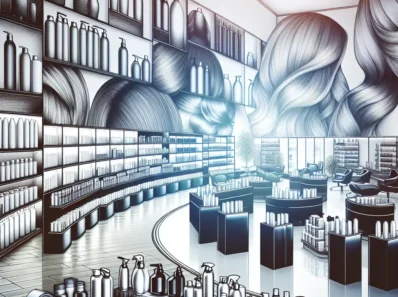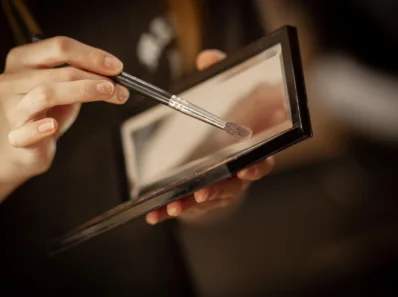The Science Behind Makeup: How It Impacts Our Emotions
When it comes to the science behind makeup and its impact on our emotions, one cannot overlook the significance of mascara. The act of applying mascara to enhance the lashes is more than just a beauty routine; it has psychological implications. Research has shown that the process of applying mascara can have a positive effect on one’s mood, as it is often associated with enhancing one’s eyes and overall appearance. To learn more about how mascara and other makeup products can influence our emotions, visit mascara.
The Science Behind Makeup: How It Impacts Our Emotions
Makeup has been used for centuries as a form of self-expression and enhancement, but its effects on our emotions and psychology have only recently gained significant attention. The science behind makeup and its impact on our emotions is a fascinating area of study that delves into the complex relationship between appearance, self-perception, and mood.
Research has shown that applying makeup can have a positive influence on our emotions. The act of applying makeup activates the brain’s reward system, leading to an increase in dopamine levels and a subsequent improvement in mood. Furthermore, the process of applying makeup can also have a calming effect, as it requires focus and attention to detail, which can help reduce stress and anxiety.
Moreover, the way we perceive ourselves after applying makeup can significantly impact our emotional state. Makeup has the power to boost self-confidence and self-esteem, leading to a more positive outlook and improved mood. This can be particularly beneficial in social situations, where feeling confident in one’s appearance can lead to greater feelings of happiness and contentment.
It’s important to note that the impact of makeup on emotions can vary from person to person, and the reasons for using makeup can also influence its psychological effects. For some, makeup serves as a form of creative expression and can enhance feelings of authenticity and individuality, leading to a sense of empowerment and emotional well-being.
Overall, the science behind makeup and its effects on emotions highlights the intricate relationship between appearance, self-perception, and mood. Understanding how makeup impacts our emotions can provide valuable insights into the ways in which we use cosmetics as a tool for self-expression, confidence, and emotional well-being.
Exploring the Connection Between Makeup and Self-Expression
Exploring the connection between makeup and self-expression is a fascinating topic that delves into the psychological nuances of how we present ourselves to the world. Makeup has been utilized for centuries as a form of self-expression, allowing individuals to showcase their creativity, personality, and individuality. Whether it’s through bold, vibrant colors or subtle, natural tones, the choices we make in our makeup routines can communicate a multitude of messages about who we are and how we want to be perceived.
The Influence of Makeup on Confidence and Self-Esteem
When it comes to the psychology of makeup, one of the most significant aspects to explore is its influence on confidence and self-esteem. Research has shown that the application of makeup can have a powerful impact on how individuals perceive themselves and how they are perceived by others. The act of applying makeup can boost self-confidence and enhance self-esteem, leading to a more positive self-image.
Furthermore, the use of makeup is often associated with a sense of empowerment, as it allows individuals to present themselves in a way that aligns with their desired image. This can lead to increased confidence in social interactions and professional settings. Additionally, the ritual of applying makeup can serve as a form of self-care, providing individuals with a sense of control and creativity, which in turn contributes to their overall confidence and self-esteem.
In essence, makeup acts as a tool for self-expression and self-enhancement, influencing the way individuals feel about themselves and how they navigate the world around them. Understanding the psychological implications of makeup usage can shed light on the profound effect it has on confidence and self-esteem, shaping the way individuals present themselves and engage with others.
Psychological Effects of Beauty Rituals: Understanding Makeup’s Impact
When we think about makeup, we often consider its physical effects – how it enhances our features and complements our outfits. However, the psychological impact of beauty rituals goes far beyond the surface. The act of applying makeup can have a profound effect on our mood and mental well-being. Research has shown that engaging in beauty rituals, such as applying makeup, can lead to increased confidence and self-esteem. This can be attributed to the ritualistic nature of the process, which can have a calming and centering effect on the mind.
Furthermore, the use of makeup has been linked to the phenomenon of „enclothed cognition,” where the clothing or, in this case, makeup we wear can influence our psychological processes. For example, wearing makeup may lead individuals to feel more professional, put-together, or even more attractive, ultimately affecting their behavior and interactions with others. Therefore, it is clear that makeup is not just a surface-level enhancement, but a powerful tool that can significantly influence our psychological state and the way we perceive ourselves.
Understanding the psychological effects of beauty rituals is essential in appreciating the impact that makeup can have on our overall well-being. By recognizing the link between makeup and our mental state, we can harness its potential to boost confidence, improve mood, and cultivate a positive self-image. As we delve deeper into the psychology of makeup, it becomes evident that its influence stretches far beyond the physical realm, making it an intriguing subject for further exploration and research.



